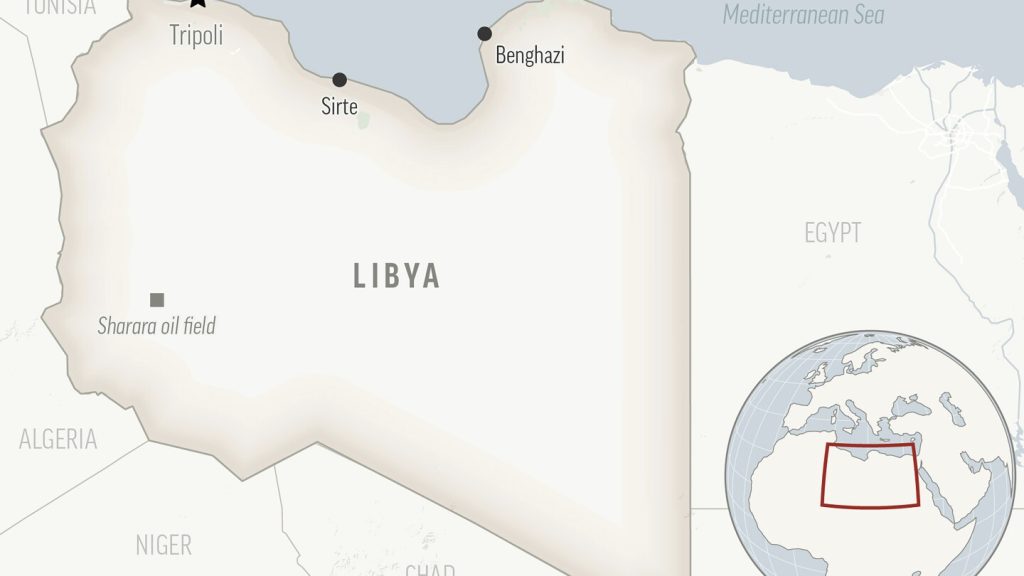Uncovering Tragedy: The Grim Discovery of Mass Graves in Libya
Libyan authorities have made a devastating discovery in the southeastern region of the country, unearthing nearly 50 bodies from two mass graves. The first grave, containing 19 bodies, was found on a farm in the city of Kufra on Friday. Authorities immediately transported the bodies for autopsy, while images shared on social media showed police officers and medical professionals carefully exhuming the remains, which were wrapped in blankets. The al-Abreen charity, which works to assist migrants in eastern and southern Libya, reported that some of the victims appeared to have been shot before being buried.
In a separate but equally harrowing finding, a second mass grave was uncovered in Kufra, this time holding at least 30 bodies. According to Mohamed al-Fadeil, head of the security chamber in Kufra, survivors reported that as many as 70 people could be buried in this grave. The discovery came after authorities raided a human trafficking center in the area. The search for additional victims is ongoing, as authorities continue to comb through the desert landscape.
The Broader Context: Libya’s Role in the Migration Crisis
The tragic discoveries in Kufra are the latest in a long series of grim reminders of Libya’s role as a transit point for migrants seeking to reach Europe. The country has been plagued by instability since the 2011 NATO-backed uprising that toppled and killed former dictator Muammar Gaddafi. This instability has created a fertile ground for human traffickers, who exploit desperate migrants attempting to escape poverty, conflict, or persecution in their home countries.
Libya’s strategic location—bordering six nations, including Chad, Niger, Sudan, Egypt, Algeria, and Tunisia—makes it a key gateway for migrants from Africa and the Middle East. Once in Libya, many are forced to endure horrific conditions as they wait to be smuggled across the Mediterranean Sea. Traffickers often pack migrants into poorly equipped rubber boats, launching them on the perilous Central Mediterranean Sea route, one of the deadliest migration pathways in the world.
The Brutal Reality of Human Trafficking in Libya
The discoveries in Kufra highlight the brutal realities faced by migrants in Libya. Human traffickers have thrived in the chaos that has gripped the country for over a decade. Migrants are often subjected to forced labor, beatings, rapes, and torture at the hands of traffickers. These abuses are frequently used to extort money from migrants or their families, with the promise of being allowed to continue their journey to Europe.
The situation for those who are intercepted and returned to Libya is equally dire. Migrants, including women and children, are often detained in government-run detention centers where they face further abuse, including torture, rape, and extortion. Rights groups and U.N. agencies have extensively documented these abuses, yet they continue to persist with little accountability for those responsible.
A Cycle of Suffering: The Plight of Migrants in Libya
The mass graves in Kufra are not an isolated incident. In recent years, similar discoveries have been made across Libya. For instance, in 2022, authorities uncovered the remains of at least 65 migrants in the Shuayrif region, some 350 kilometers south of Tripoli. These findings underscore the scale of the humanitarian crisis unfolding in the country, as thousands of migrants vanish or are killed during their journeys.
The suffering of migrants in Libya is not limited to those who lose their lives. Many who survive the journey are left with deep physical and psychological scars. Survivors often report being subjected to inhumane treatment, including being held in makeshift prisons, forced to work without pay, and enduring prolonged periods of malnutrition and dehydration. Despite these horrors, migrants continue to risk everything in the hope of reaching Europe, driven by the promise of a better life.
International Response and the Need for Action
The ongoing migrant crisis in Libya has prompted widespread condemnation from human rights organizations and international bodies. Groups such as Amnesty International and the United Nations have repeatedly called for action to protect migrants and hold perpetrators of abuses accountable. However, meaningful progress has been slow, as Libya’s fragmented governance and ongoing conflict continue to hinder efforts to address the issue.
For years, European governments have faced criticism for their role in supporting Libya’s migrant detention system through funding and cooperation with Libyan authorities. Critics argue that these policies have enabled the abuse of migrants by prioritizing the containment of migration flows over the protection of human rights. The discoveries in Kufra serve as a stark reminder of the urgent need for a more compassionate and sustainable approach to migration management.
A Path Forward: Addressing the Root Causes of Migration
The mass graves in Kufra are a grim reminder of the consequences of Libya’s instability and the broader migration crisis gripping the region. To address this issue, it is crucial to tackle the root causes driving migration, such as poverty, conflict, and lack of opportunities in migrants’ home countries. At the same time, international cooperation is needed to dismantle human trafficking networks and bring perpetrators to justice.
Libya’s future stability will depend on its ability to move beyond the chaos of the past decade and establish a unified, accountable government. Until then, the country will continue to serve as a dangerous transit point for migrants, and the discoveries of mass graves will likely not be the last. The international community must take a more active role in supporting Libya’s recovery and advocating for the rights of migrants, ensuring that their journeys are marked by dignity and safety rather than despair and death.
The stories of those lost in Libya’s deserts are a heartbreaking testament to the human cost of instability, exploitation, and neglect. As the world grapples with the complexities of migration, the discoveries in Kufra serve as a poignant reminder of the need for compassion, justice, and action.












